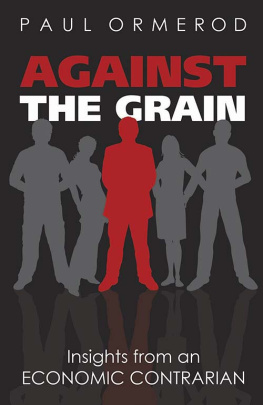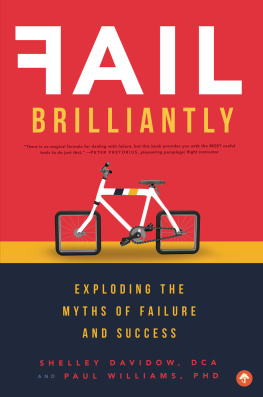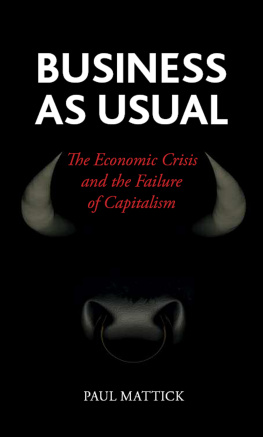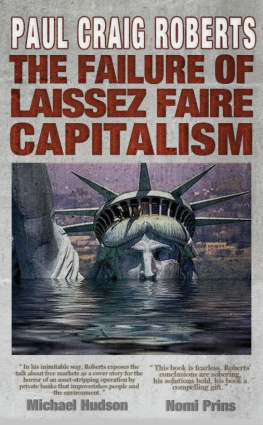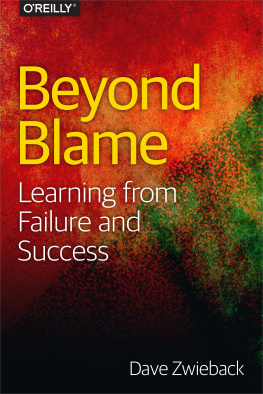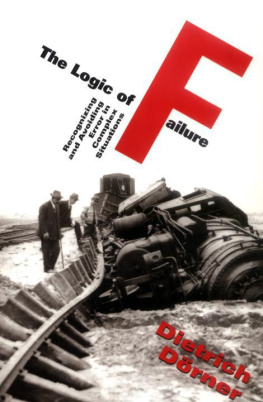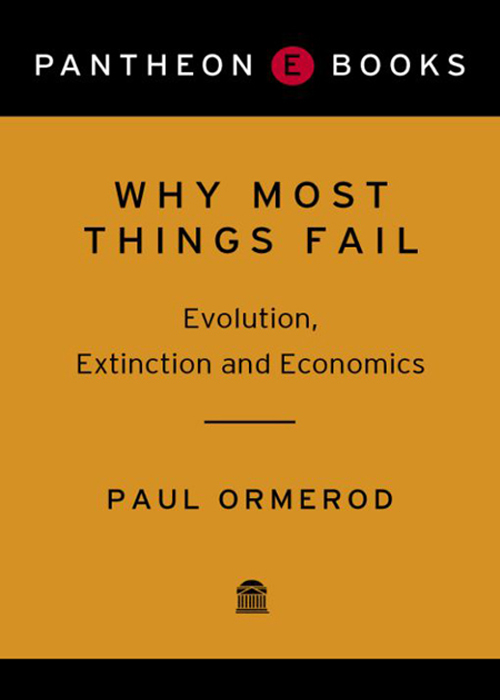
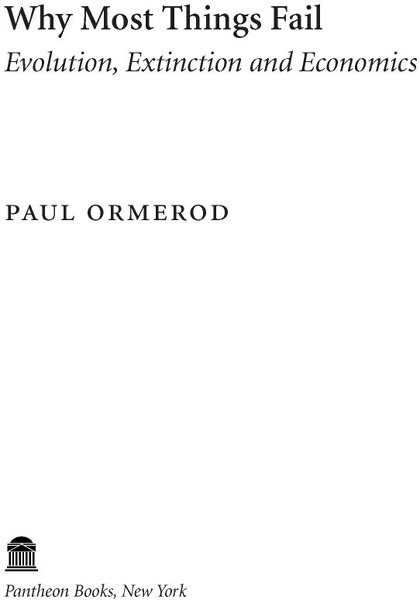
Table of Contents
Preface
An argument I first made ten years ago in my book The Deathof Economics noted that conventional economics views the economy and society as machines, whose behaviour, no matter how complicated, is ultimately predictable and controllable. On the contrary, however, human society is more like a living organism.
My previous book, Butterfly Economics, which was first published in Britain in 1998 and has subsequently appeared in many languages around the world, developed this theme. I analyzed a wide and seemingly disparate range of economic and social questions, seeing them as analogous to living creatures whose behaviour can only be understood by looking at the complex interactions of their individual parts.
The idea that economics should look to biology for intellectual inspiration is a long-held and distinguished one. Alfred Marshall, who founded the faculty of economics at Cambridge University around 1900, was the first major scholar to articulate this view. Later, Friedrich Hayek, perhaps the most innovative social scientist of the twentieth century and a thinker many years ahead of his time, stressed the importance of dynamic, evolutionary change in the workings of human social and economic systems, while Joseph Schumpeter of Harvard wrote famously of the gales of creative destruction which he regarded as the defining principle of the market-oriented capitalist economies.
These ideas have never really been absorbed into the economics mainstream. Stability, order and equilibrium continue to be emphasized when the real world is characterized by constant change, evolution and disequilibrium. Part of the reason for the failure of economics to move in this direction is sheer intellectual inertia. More forgivingly, the tools required for the systematic analysis of systems of this kind have only recently become available. Butterfly Economics gave a number of practical examples where the new kinds of analysis required to understand such complex systems provide better empirical explanations of how the world works than do the machine-like views of economic orthodoxy.
In this book, I address what is probably the most fundamental feature of both biological and human social and economic systems: failure. Species fail and become extinct, brands fail, companies fail, public policies fail. Fortunately, not everything fails at the same time. And sometimes we can see examples of success which persist for long periods of time. The Roman Empire, for example, lasted for many centuries. But to understand success we must first understand the pervasive existence of failure. The documentation of failure, the identification of subtle patterns amongst the apparent disorder of failure, and analyzing why failure arises are the main themes of this book.
I am grateful to a number of people for encouragement and discussions which have helped to develop the ideas of this book, and in particular to Rich Colbaugh, Bridget Rosewell and Bob Rowthorn. Julian Loose of Faber and Faber has once again proved to be a very helpful and inspirational editor.
PAUL ORMEROD
London, Wiltshire and New Mexico,
August 2004
Introduction
Failure is all around us. Failure is pervasive. Failure is everywhere, across time, across place and across different aspects of life. Ninety-nine point nine nine per cent of all biological species which have ever existed are now extinct. Failure in this context is measured over hundreds of millions of years. On a dramatically shorter timescale, more than 10 per cent of all the companies in America disappear each year. Large and small, from corporate giants to the tiniest one-person business, they fail.
Over the last fifty or sixty years, western governments have intervened to try to improve the social and economic life of their countries on a scale unimaginable to previous generations. Yet social and economic problems persist. Policies fail.
Two examples will suffice. Despite decades of governmental activity to promote integration, residential areas in many western countries remain strongly segregated along racial lines. For many years, the powers that be have also tried to increase social mobility, to ensure that the children of the poor have as many opportunities to better themselves as the children of the rich. Yet the evidence shows that social mobility, far from increasing, has actually fallen in recent years.
From biological species to companies to government policies, there appears to be an Iron Law of Failure, which is extremely difficult to break. Yet the existence of failure is one of the great unmentionables. Within economics, we will look in vain for any satisfactory account of why firms fail. Business gurus eulogize contemporary success, conveniently ignoring the fact that many of these firms often fall on harder times soon after receiving their acclaim. Enron, for example, was praised to the skies for its dynamism and innovative thinking right up to the point when it became the epitome of corporate greed and maladministration.
In the more abstract world of economic theory, we can find a great deal of material, much of it irrelevant or even misleading, on what firms should do in order to succeed. But there is little, if anything, about why firms fail.
Charles Darwins brilliant theory of evolution, expounded in the middle of the nineteenth century, explains not why species fail, but why they succeed. In the Darwinian theory of the process of evolution, species gradually become better adapted to their immediate environment, become fitter for survival.
In spite of this, nemesis eventually claims them, and species become extinct. The survival of the fittest comes up against the Iron Law of Failure. How can it be that even the fittest, honed and toned to compete in the struggle for survival, fall by the wayside and disappear for ever? The endemic failure at the level of the individual species confronts us with this paradox. Darwin wrote almost 150 years ago, but it is only very recently indeed that biological theorists have begun to analyze systematically the evidence of failure at the species level.
The Iron Law of Failure appears to extend from the world of biology into human activities, into social and economic organizations. The precise mathematical relationship which describes the link between the frequency and size of the extinction of companies, for example, is virtually identical to that which describes the extinction of biological species in the fossil record. Only the timescales differ.
The book addresses some intellectually demanding topics. Many of the results that are referred to, particularly in the second half of the book, are based upon mathematical models of aspects of both society and the economy. But I can reassure readers from the outset that this book is written entirely in English, aided to some extent by charts and graphs. Those who crave mathematical detail can readily satisfy their urges in the references listed at the end of the book.
The main theme of this book is to develop a general explanation of the pervasive nature of failure in the world of human societies and economies. Though there are striking parallels between the social and economic world and the world of biology there is, however, a fundamental difference between the two: the process of evolution in biological species cannot be planned. Species cannot act with the intent of increasing their fitness to survive. In contrast, in human society, individuals, firms and governments all strive consciously to devise successful strategies for survival. They adapt these strategies over time and alter their plans as circumstances change. Yet, despite this apparent contrast, eventually, in both biological evolution and human social and economic activity, failure strikes.
Next page

